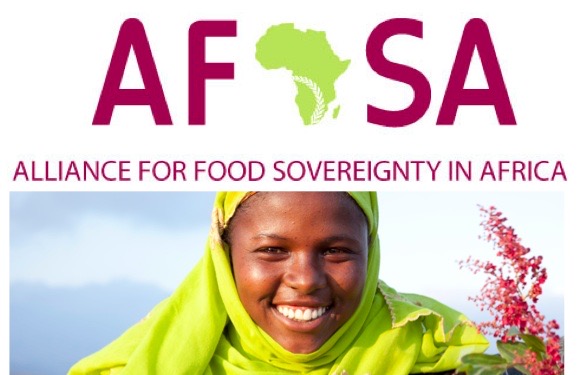Read in
The Alliance for Food Sovereignty in Africa (AFSA) has express a strong disappointment on how the negotiations, were turned into a series of back-and-forth debates among parties on a few concepts, especially in line with agriculture, have yet to yield any substantial outcome.
“At this 58th Subsidiary Bodies (SBs) meeting session, we expected climate action implementation on agriculture and food security would be launched with a clear direction for actors. We are deeply concerned and disappointed that the negotiations were turned into a series of back-and-forth debates among parties on a few concepts,” (AFSA)’s Communication Officer, Kirubel Tadele noted.
This is according to a Press Release statement made available on 14th July, 2023 – Thursday by the Alliance for Food Sovereignty in Africa (AFSA)’s Communication Officer, Kirubel Tadele in Bonn, Germany for the 58th meeting of the subsidiary bodies to the United Nations Framework Convention on Climate Change on behalf of 41 African Networks and organizations representing up to 200 million Africans, including Non-Government Organizations, small-scale farmers, pastoralists, fisherfolks, indigenous peoples, women, and youth groups, agroecological entrepreneurs, environmentalists, and consumer groups.
AFSA’s Communication Officer, Kirubel Tadele expressed an alarm, “We are also profoundly concerned about several proposals for future topics that parties submitted. Topics such as Nature Based Solutions, Climate Smart Agriculture, Biotechnology, and Artificial Intelligence are a loose inclusion of concepts already heavily contested and unregulated, especially in African countries, which hold the majority of small-scale food producers globally and are responsible for feeding the majority of the global population.”
“We commend parties for proposing agroecology as part of future topics and strongly urge that this be maintained in the final decision to represent the millions of small-scale farmers and consumers practicing and benefiting from agroecology as a climate adaptation and mitigation measure,” AFSA’s Communication Officer, Kirubel Tadele, recommended.
AFSA further concerned that even as the 58th Subsidiary Bodies (SBs) meeting comes to a closure, there is no clear direction yet on implementing the Sharm el Sheik decision on the implementation of agriculture and food security.
“With only three years left to conclude the four-year work program, we are concerned that without a decision on actualizing implementation, the impact of climate change on the lives and livelihoods of the millions of smallholder farmers, fisherfolks, pastoralists, local and indigenous communities, youth, and women in the agriculture sector can only get worse,” AFSA)’s Communication Officer, Kirubel Tadele observed.
Alliance for Food Sovereignty in Africa (AFSA)’s Communication Officer, Kirubel Tadele has however made a strong call to parties at the 58th Subsidiary Bodies (SBs) meeting to adopt agroecology as a standalone future topic related to agriculture and food security on the premise that it has been proven over the years to promote sustainable food systems, reduce Green House Gas Emissions, improve food security, and enhances the resilience of agrarian communities.
“We, therefore, call on all parties to come to a quick consensus on implementing the Sharm El Sheikh joint work on agriculture and food security,” AFSA)’s Communication Officer, Kirubel Tadele urged.
AFSA’s position on agroecology is aligned with the African Union’s strategy for climate resilience and development, which emphasizes production toward an agroecological transition to reduce GHG intensity (including methane and other gases) and dependencies on external inputs. It is also aligned with the IPCC WG II report, which recognizes that Agroecological principles and practices, ecosystem-based management in fisheries and aquaculture, and other approaches that work with natural processes support food security, nutrition, health and well-being, livelihoods and biodiversity, sustainability, and ecosystem services” (high



